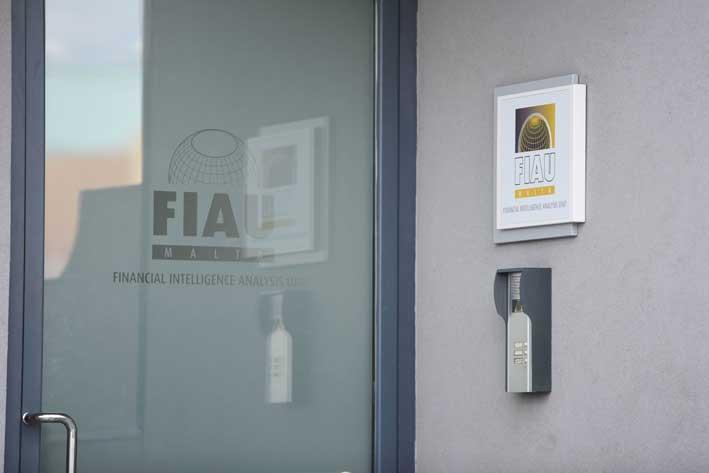Former police commissioner Michael Cassar was reluctant to divulge the reasons for his resignation from the force, preferring to testify about this behind closed doors.
Journalists following the public inquiry into the assassination of Daphne Caruana Galizia were ordered outside the courtroom until Cassar gave his reasons to the board, made up of Judge Michael Mallia, former chief Justice Joseph Said Pullicino and Madam Justice Abigail Lofaro.
Before the journalists were told to leave, Cassar had seemed reluctant to divulge details, but had said that he did not resign because of an investigation. He said there was never any interference in his investigations but, administratively, it was another matter.
In his testimony, Cassar explained that the FIAU has stronger powers than the police, especially in acquiring information. This meant that reports would come through from the FIAU containing evidence which could not be presented in court due to the way in which it was obtained.
Cassar served as Police Commissioner between 9 December 2014 and 27 April 2016. It had then been said that he had resigned for health reasons.
The case continues on Monday 14 January at 2.30pm with Sandro Chetcuti and former Acting Commissioner Ray Zammit. On Tuesday 15 January, a confidential and anonymous testimony will be taking place.
The minute-by minute testimony of Michael Cassar can be found below
4.48pm: Cassar's testimony is over. Journalists were not allowed to hear what he had to say for nearly 50 minutes.
4.30pm: Cassar's testimony continues behind closed doors.
3.58pm: Cassar at this point seems hesitant to continue on the reasons for his resignation and adminstrative meddling he had referred to earlier. He is offered the facility of testifying in confidence, which he takes up. Journalists were told to momentarily leave the courtroom. Caruana Galizia's family members are allowed to remain inside.
3.56pm: Cassar says that he had not left because of this case. He says that nobody had ever - and he emphasised the "ever" - interfered in his investigations. "Administratively it was another story", he said.
3.53pm: "Operation Green" was the name given to Schembri's file. The file number is CID/0442/E/16, Cassar says, opened 8 April 2016. (Operation Green was the title for an investigation into former chief of staff Keith Schembri and Brian Tonna of Nexia BT). This report contained politically exposed persons, Madam Justice Lofaro points out, before asking whether there had been any intervention from any politicians or ministries. Cassar says that this is not the case but said that he had gone abroad the day after, and that he had already decided that he was going to leave the force.
3.52pm: Judge Said Pullicino asks about a brief written by the FIAU about Keith Schembri. "Did you proceed with that?" "Of course," Cassar replies. Judge Said Pullicino asks to clarify. Cassar says that he had asked whether the FIAU were working on this, and was told that they were. When that is the case, the police waits for the FIAU to complete their investigation. Having dual investigations can confuse matters, Cassar says.
3.48pm: Cassar explains that the FIAU has stronger powers than the police, especially in acquiring information. This meant that reports would come through from the FIAU containing evidence which could not be presented in court due to present legislation. Asked by Judge Said Pullicino whether he would amend the law for the police to be able to proceed on FIAU evidence, Cassar advocated it fully.

3.45pm: Asked whether he received FIAU reports, Cassar replied that he would receive these. Madam Justice Lofaro asks whether there was any interference from anyone on them, to which Cassar again replies in the negative.
3.43pm: He says that a fixed point had been placed outside the Caruana Galizia residence between 9 and 28 March 2008, 6 and 12 October in 2010, 10 to 12 March in 2013, and 4 to 6 June in 2017. Three of these periods - in 2008, 2013, and 2017 - coincide with general elections. Asked whether he ever had any particular order about Caruana Galizia's security, Cassar replies in the negative. He says that nobody would interefere in his investigations. "They wouldn't dare", he said.
3.41pm: Asked whether the protection system is centralised at the depot, Cassar replies that there is indeed a file from 1998 - at which point he pulls a piece of paper out of his pocket - which gives a list of fixed points reviewed by the Police Commissioner. However, he says, there is no register of frequent patrols as these were periodical by nature.
3.39pm: Asked whether he was aware of patrols or fixed points during Rizzo's tenure, Cassar states that he was not. Cassar says that he knows what it's like to have police protection with oneself, and that he can speak both as a police officer and as a victim in this regard.
3.36pm: He says that it had crossed his mind for a fixed point to be placed, but then was told that Commissioner Rizzo had offered this but that Daphne Caruana Galizia had rejected the idea. He said that he didn't feel like he had a bad relationship with her, and noted that from his role in the MSS he had never had any information about any threats to her. Asked whether any risk assessment conference had been done specifically for her, Cassar replies in the negative.
3.35pm: Mallia starts with a direct question, asking about the level of protection for Caruana Galizia and the level of threat to her that he had found when taking the office. Cassar replies that he had asked about it when taking office, and was told that patrols were being carried out. He verified that these were done and asked police officers to take special care and attention when passing in front of the Caruana Galizia household.
3.34pm: Cassar served as Police Commissioner between 9 December 2014 and 27 April 2016.
Former police chief Peter Paul Zammit's testimony